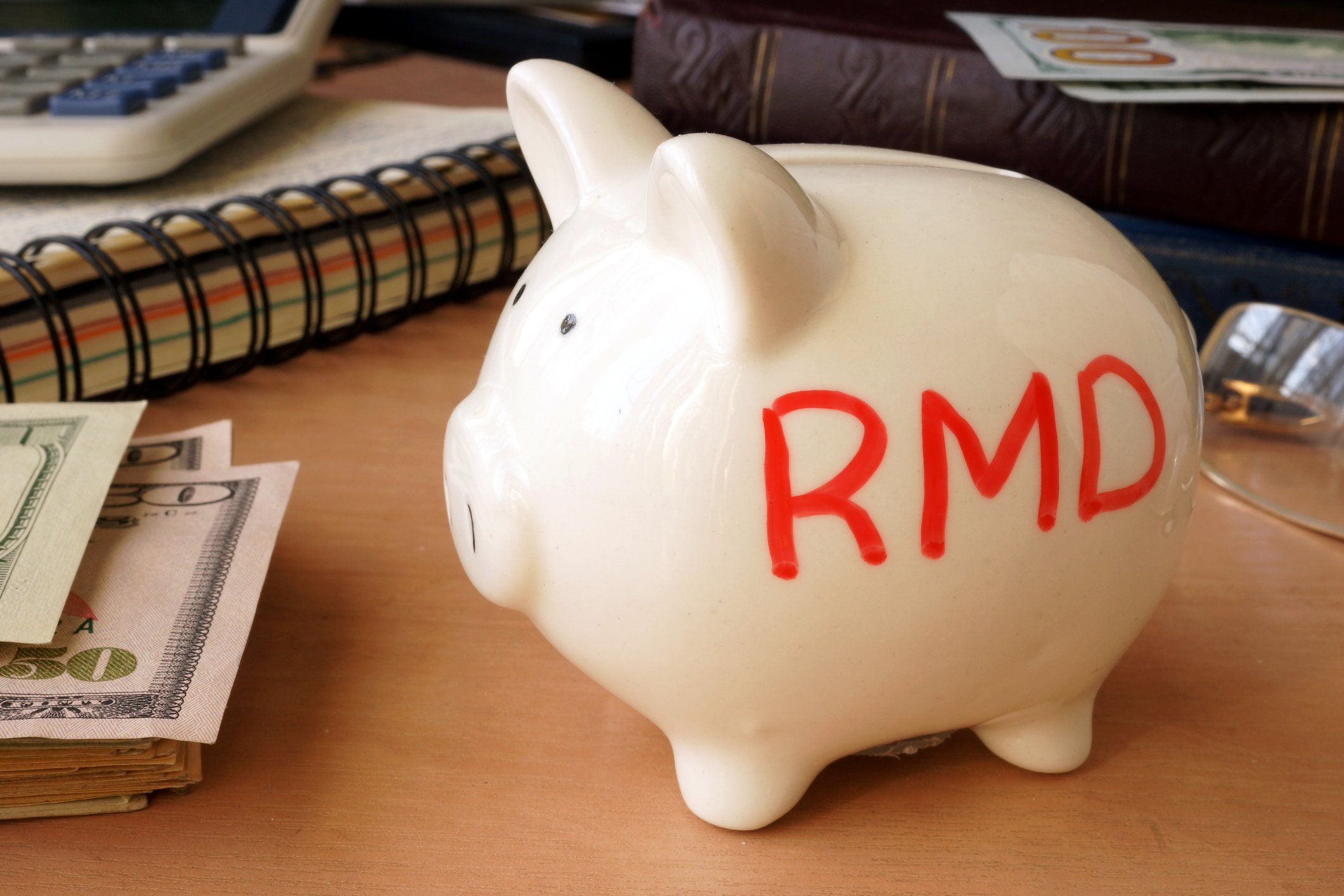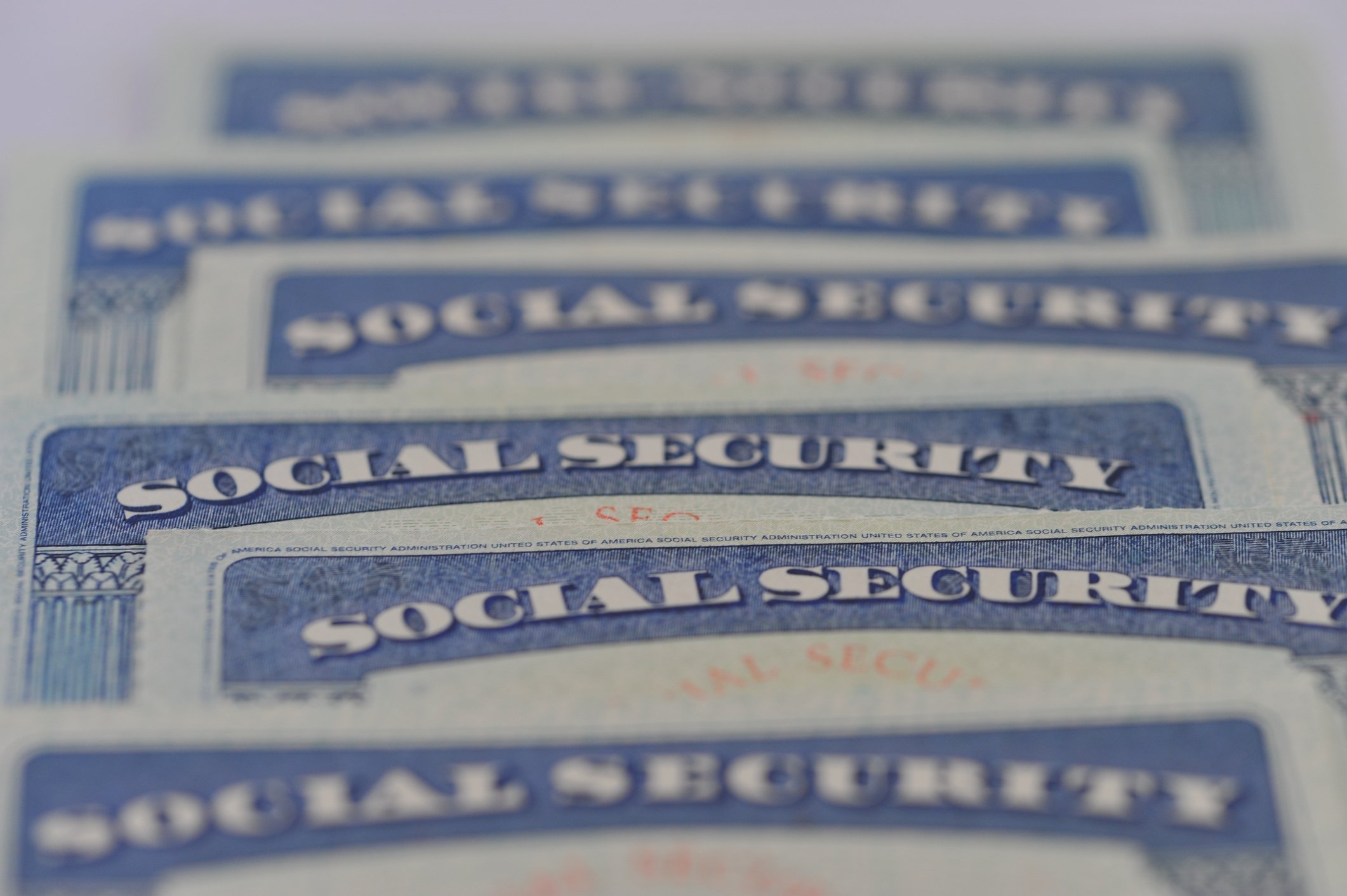Social Security is easily the most important social program in the United States. Out of its 64 million beneficiaries, more than a third are pulled out of poverty as a sole result of their guaranteed monthly payout from the program, with 62% of retired workers deriving at least half of their income from Social Security.
In addition to being a financial savior for tens of millions of people, it's also a dynamic program that's constantly evolving to take into account factors such as the inflation rate and wage inflation. With a host of changes announced by the Social Security Administration this past October, beneficiaries and working Americans could see their wallets affected in a variety of ways in 2020.

Image source: Getty Images.
1. You'll probably get a "raise"
Let's start with what's most likely good news for most Social Security recipients: You'll be receiving a monthly payout increase of 1.6% in 2020. For the average retired worker, this works to an increase in their monthly payout of $24 to $1,503, according to the Social Security Administration.
Although Social Security's cost-of-living adjustment (COLA) of 1.6% is down notably from the 2.8% beneficiaries received in 2019, it's still slightly above average compared to COLAs over the past decade. Remember, no COLA was passed along in 2010, 2011, and 2016, following instances of deflation, and a mere 0.3% COLA was registered in 2017, representing the smallest increase on record over the 45 years that the Consumer Price Index for Urban Wage Earners and Clerical Workers (CPI-W) has been the program's inflationary tether.
On the other hand, there's a pretty good chance that senior citizens will continue to see the purchasing power of their Social Security dollars decline over time. It's no secret that the CPI-W does a poor job of encompassing the true inflation that retired workers are contending with each year. As a result, an analysis from The Senior Citizens League finds that the purchasing power of Social Security dollars for seniors has fallen 18% over just the past decade, and 33% since the year 2000.
What's more, a nearly 7% increase in Medicare Part B premiums in 2020 could devour any chance of a nominal payout increase for millions of low-income Social Security beneficiaries. This is why I've noted that you'll "probably get a raise," because steep increases in Part B premiums could keep some seniors from seeing so much as a dime in extra payouts next year.

Image source: Getty Images.
2. Early filers will be allowed to earn more before withholding kicks in
Another one of the many changes announced by the Social Security Administration (SSA) in October is that the income thresholds associated with the retirement earnings test will be increasing in 2020. The retirement earnings test allows the SSA to withhold some or all of an individual's benefits if they've yet to reach their full retirement age and they earn more than a set amount of income.
For example, those folks receiving benefits who won't reach their full retirement age next year can be subjected to having $1 in benefits withheld for every $2 in earnings above $18,240 ($1,520 a month). This represents a $50 a month increase from the income threshold where withholding kicked in 2019.
Meanwhile, if a worker will reach their full retirement age in 2020, they'll be allowed to earn $48,600 ($4,050 a month) before withhold kicks in. This is a $140 per month climb from 2019's threshold for workers set to hit their full retirement age in the upcoming year. Should an individual hit this earnings threshold, $1 in benefits can be withheld for every $3 in earned income above this amount.
In other words, early filers won't be punished as much in 2020, but the program still incents patience. Also, take note that once you've hit your full retirement age, regardless of when you begin taking benefits, the retirement earnings test no longer applies. Additionally, any withheld benefits are returned in the form of a higher monthly payout after your hit your full retirement age.

Image source: Getty Images.
3. The well-to-do will have to open their wallets a bit wider
The Social Security program will also see a change to the payroll tax in 2020 that'll have well-to-do workers paying a bit more into the system.
Social Security's 12.4% payroll tax on earned income is the program's workhorse and, in 2018, was responsible for $885 billion of the $1 trillion collected. In 2019, it's applicable to all earned income (i.e., wages and salary, but not investment income) between $0.01 and $132,900, with this $132,900 figure known as the maximum taxable earnings cap. In 2020, this cap, which is tied to increases in the National Average Wage Index, is rising by $4,800 to $137,700.
What's this mean? Well, since 94% of working Americans won't earn $132,900 in 2019, it won't make one bit of difference for the vast majority of people. But for those few workers who are in the high-income bracket, it means having to pay more into Social Security next year (up to an extra $595, to be exact).

Image source: Getty Images.
4. High-income earners can net a larger monthly payout at full retirement age
However, high-income workers can take solace in the fact that their above-average wages may pay off come retirement. Don't forget that your work and earnings history over a 35-year period play a big role in determining what you'll be paid at full retirement age, along with your birth year and claiming age.
As announced by the SSA in October, the maximum monthly payout at full retirement age will be climbing by $150 to $3,011 in 2020. Put another way, the wealthy will be netting a raise of up to $1,800 in 2020, and could see their annual payout from Social Security be nearly triple that of the federal poverty level.
Suffice it to say that big changes are on the way for Social Security, and your wallet could be affected.





